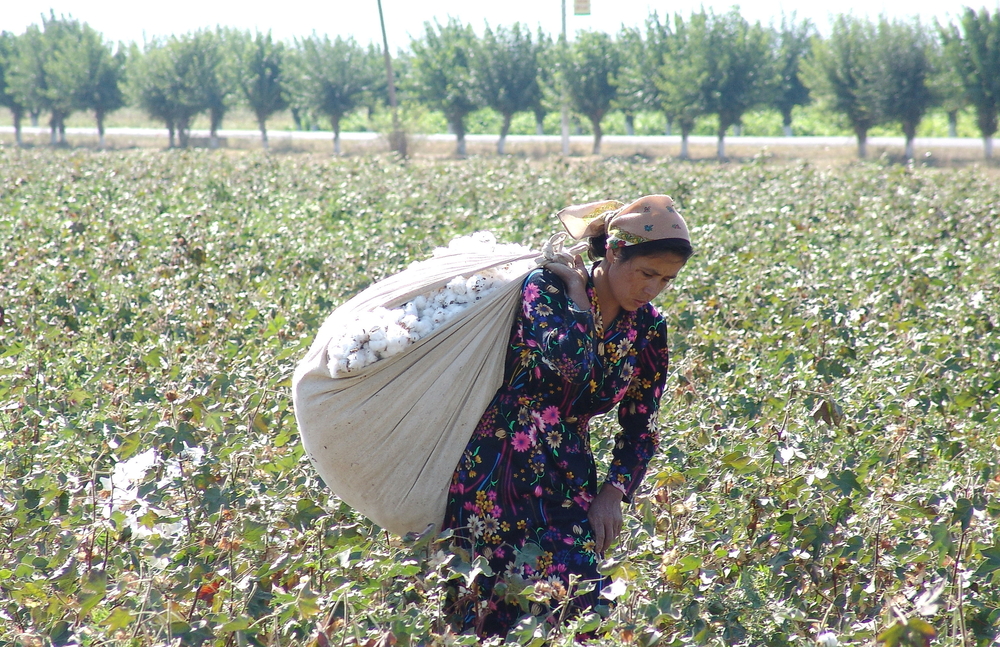Forced Labor in the Supply Chains

The AFL-CIO’s Solidarity Center has a report out about forced labor from Turkmenistan in the cotton supply chains. It’s a pretty bloody awful story.
Cotton bound for global markets from Turkmenistan—the ninth largest producer and seventh largest exporter of the world’s cotton—was again harvested with forced labor last year, finds a new report by the Turkmen Initiative for Human Rights and turkmen.news. Students and public-sector employees—including teachers—were systematically forced into the cotton fields in four of Turkmenistan’s five regions during the 2020 fall harvesting season, documents the report.
“The Turkmen government consistently denies the use of forced labor in the country during the cotton harvest despite abundant evidence to the contrary,” says Ruslan Myatiev, turkmen.news editor and human rights defender.
The report documents the forced participation—under threat of dismissal from their jobs or expulsion from their educational institutions—of public-sector employees and high school, vocational and college students. Report findings are based on evidence documented by trained civil society monitors working for the Turkmen Initiative for Human Rights in four of the five regions of Turkmenistan: Ahal, Dashoguz, Lebap and Mary. Women are especially vulnerable to forced labor in the country because they comprise most of the public-sector workforce traditionally involved in the cotton harvest, says the report.
Public-sector workers, including teachers, were expected to provide so-called voluntary contributions from their salaries or in personal time worked in the fields, or a replacement worker—often their students—for “successful achievement of the state plan for the cotton harvest,” states “Review of the Use of Forced Labor in Turkmenistan during the 2020 Cotton Harvest.” For example, during the country’s eight-day fall break, starting October 22, all teachers in the schools in the Dashoguz region had to pick cotton or pay for a replacement worker to go to the fields.
Forced labor of teachers, doctors and other public-sector employees is crippling health and education public services, says the report, while extortion of money from such employees is exacerbating citizens’ suffering during the country’s worsening economic crisis in the context of COVID-19-related food shortages and rising prices.
“Together with other members of the Cotton Campaign, the Solidarity Center demands respect for international conventions against forced labor. Nobody should be coerced into working the fields, and those who monitor working conditions in the cotton fields must be free to do so,” says Abby McGill, Solidarity Center senior program officer for Eastern Europe and Central Asia.
I’ll say this until I am blue in the face–the only real answer for this is to force companies to have legal responsibility for the conditions in their supply chains. They do a great job controlling for both cost and quality. So don’t listen to them when they say they can’t control their supply chains. They simply choose not to because they don’t care. Force them to care and it will change very quickly. We need the Corporate Accountability Act to be a central piece of American progressive agenda. Alas, most of us can’t find Turkmenistan on a map and these issues remain extremely niche, even within left and liberal circles.


